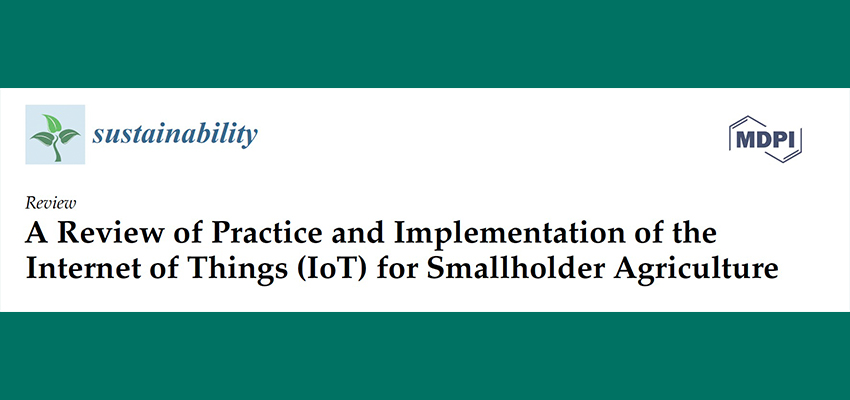
A Review of Practice and Implementation of the Internet of Things (IoT) for Smallholder Agriculture
Abstract
In order to feed a growing global population projected to increase to 9 billion by 2050, food production will need to increase from its current level. The bulk of this growth will need to come from smallholder farmers who rely on generational knowledge in their farming practices and who live in locations where weather patterns and seasons are becoming less predictable due to climate change. The expansion of internet-connected devices is increasing opportunities to apply digital tools and services on smallholder farms, including monitoring soil and plants in horticulture, water quality in aquaculture, and ambient environments in greenhouses. In combination with other food security e orts, internet of things (IoT)-enabled precision smallholder farming has the potential to improve livelihoods and accelerate low- and middle-income countries’ journey to self-reliance. Using a combination of interviews, surveys and site visits to gather information, this research presents a review of the current state of the IoT for on-farm measurement, cases of successful IoT implementation in low- and middle-income countries, challenges associated with implementing the IoT on smallholder farms, and recommendations for practitioners.
Online version at the journal, Sustainability
More information
Internet of Things: Low Cost Sensors for Agriculture
Contact
Dan Sweeney, MIT D-Lab Research Scientist

